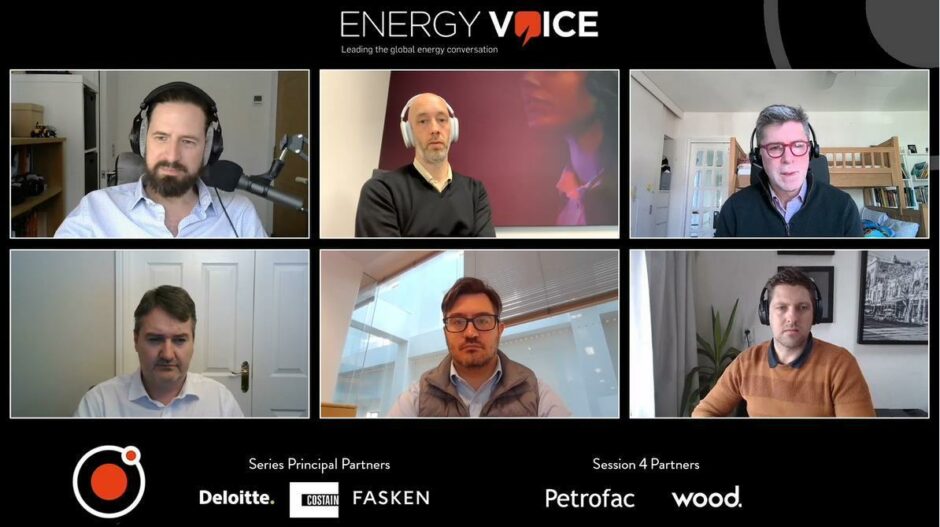
Questions of green or blue hydrogen are by the by, there is a major need for construction to get under way in order to achieve net zero participants at the fourth episode of Hydrogen – Tracking Transition said recently.
The panellists set out a number of ways in which the future may play out. What they agreed on, though, was
Communities have sometimes pushed back against more traditional facilities, whether that be in Wales with opposition to power lines in areas of natural beauty or in the US, where land issues derailed the Keystone XL oil sands pipeline.
The political case
It is not yet proven whether the infrastructure of the energy transition will have an easier time. Producing hydrogen that could be transported in the existing gas grid might have an easier time than building substantially more power lines, Costain’s Grant Spence said. “This would be a lot less visual and probably easier to move the molecules around the country, rather than as electrons.”
The politics would be different, Fasken’s co-lead of the hydrogen energy advisory team Daniel Brock said. “How is it perceived? We have a robust grid for gas in Canada and the US offers an opportunity for conversion to hydrogen. New pipelines to deliver clean hydrogen, I have to imagine the debate around those for the public would be very different.”
Brock went on to say politics were the major headwind for hydrogen. “Hydrogen is too compelling to be ignored, but people still don’t really know what it’s about, it’s still exotic.”
People need to see hydrogen in action in order to drive the political support needed, Brock said, noting that he was doing his part as possibly the only owner of a hydrogen fuel cell car in Ontario.
Political support for hydrogen, for instance on injection into the gas grid, would be transformative, Costain’s Spence said. If support for hydrogen firms up, the South Wales Industrial Cluster (SWIC) can reach a final investment decision (FID) in early 2024 and “build some stuff in the second half of the decade”.
The collapse of the UK’s carbon capture and storage (CCS) industry is a case in point. “We’re very good at doing studies. But we need to actually follow through. If we mean what we say about climate change being an emergency, we need to start building. You learn by doing,” Spence said.
Market means
Wood’s vice president for hydrogen Josh Carmichael signalled that substantial investments would have to go into transmission and stability. “That’s not because of renewables, that’s because the whole system is going through a transition, whether it be from electrification or hydrogen.”
Initial costs will be higher, he said, but in the end it will be cheaper than gas or coal. “Renewables are the answer, they’ve kept the lid on prices which would have otherwise sky rocketed as gas and coal is marketed out.”
“Consumer facing industries” would be more open to embracing green hydrogen, where the impact on the brand would be larger, Deloitte’s head of government and infrastructure Daniel Grosvenor said. “Other industrial, or power sectors, that becomes less important. A lot of the companies around the clusters, many of them are existing industrial oil and gas companies that have much fewer challenges with blue hydrogen.”
All sectors will want to be as green as they can be, but higher prices will have an impact on how fast these companies can change, Grosvenor said.
Picking sectors
As the series has gone on, there seems to necessarily more insight into what the feedstock will go into. Sustainable aviation fuel was one area picked out by Petrofac vice president for new energy services Jonathan Carpenter. “There’s lots of routes to produce a synthetic oil,” using various sources. “Those middle products will need to go into a hydrotreater with – ideally – green hydrogen.”
Hydrogen will ultimately go into a variety of resources. The ways in which it is produced come with different benefits. Blue hydrogen, for instance, will have CO2, which has various uses, while turquoise hydrogen produces carbon black.
“I’m constantly on the lookout for new uses of hydrogen,” Carpenter continued.
Deloitte’s Grosvenor agreed that developing the market – and the policy supports – was at the top of his wishlist. “I really want to see government strategy move from strategy into action and contracts. That could unlock a raft of projects that could deliver our 2030 targets and beyond.”
Wood’s Carmichael had a simple solution. “Bored billionaires” can provide the impetus needed to get the industry under way. “People have learnt from the Elon Musk story. He just got on with it.”
Carmichael drew a comparison with Australian mining mogul Andrew Forrest, who is working on major green hydrogen plans.
Watch the four episodes of Hydrogen – Tracking Transition by following this link.
Recommended for you

